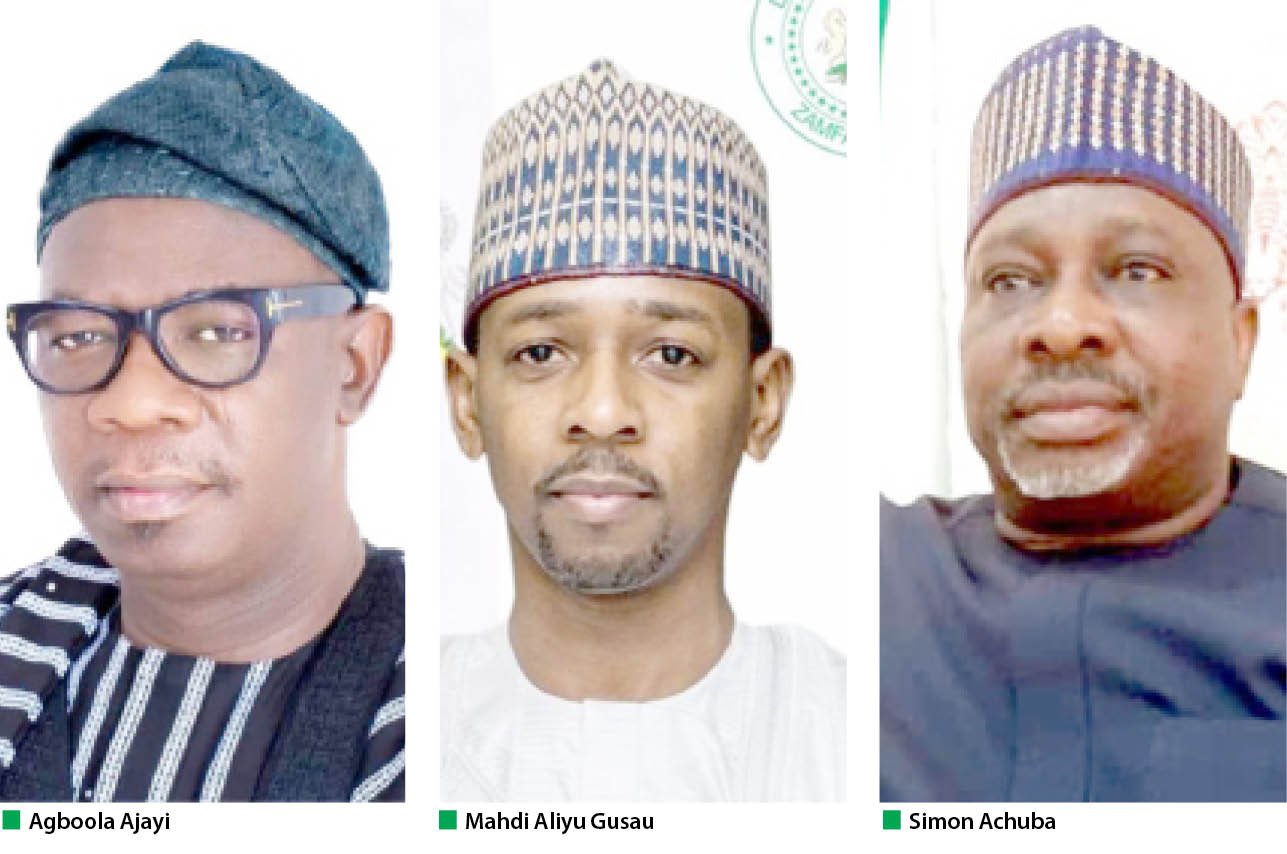Nigeria’s democracy has been treated to several instances where the governors initiate impeachment proceedings against their deputies whenever they fall out politically.
The political struggles are usually waged without recourse to the due process of the law, the courts, and the constitution, which guarantees the position of the deputy.
- Organ Harvesting: Nigerian Lady offers her kidney to Ekweremadu’s Daughter
- INEC will extend voter registration deadline – Yakubu
The latest incident came up on June 15 when members of the Oyo State House of Assembly began the process of impeaching the deputy governor of the state, Mr Rauf Olaniyan, following his defection from the Peoples Democratic Party (PDP) to the All Progressives Congress (APC).
The move, which followed the signing of a petition against the deputy governor by the assembly’s plenary presided over by the Speaker, Adebo Ogundoyin, listed allegations of gross misconduct, abuse of office, financial recklessness, abandonment of official duty, insubordination, among other offences, against him.
While the governor and his deputy’s feud were still ongoing, Governor Seyi Makinde picked Bayo Lawal as his new running mate for the 2023 governorship election in the state.
In Zamfara State, after the then Deputy Governor Mahdi Aliyu Gusau refused to join Governor Bello Matawalle in the APC, the governor initiated his impeachment by requesting the chief judge to set up a panel to probe allegations of gross misconduct against him.
He was eventually impeached on February 23 by the state Assembly, which Speaker Nasiru Mu’azu said was in pursuit of the provision of section 188(5) of the Nigerian constitution, 1999.
The impeachment proceeded despite the deputy’s suit filed before a Federal High Court in Abuja, seeking to stop the probe panel.
The PDP, however, went to a Federal High Court in defence of the party’s mandate in Zamfara State, which was abandoned by Governor Matawalle.
In the suit that is still pending in court, the PDP is asking to declare “that the second plaintiff (Gusau) being the incumbent deputy governor of Zamfara State elected on the platform of the plaintiff (PDP) is the rightful person eligible and entitled to be sworn in to take and hold the office of the governor of Zamfara State to complete the tenure or term and office for which the eight defendant (Matawalle) and second plaintiff (Gusau) were elected into office as governor and deputy governor respectively.”
The saga over the impeachment of defected deputy governor of Ondo State, Agboola Ajayi, began in July 2020, after he was accused of gross misconduct.
Some nine lawmakers signed the impeachment notice while four others refused to sign and were thus suspended indefinitely despite court orders annulling the process.
The affected lawmakers are Iroju Ogundeji, deputy speaker, representing Odigbo 1 constituency; Tomide Akinribido, representing Ondo West 1 constituency; Favour Tomomewo, representing Ilaje II constituency and Adewale Adewinle, representing Ondo West II constituency.
The charges against Ajayi border on gross misconduct, abuse of office with action likely to bring down the Ondo State Government, financial recklessness, abandonment of office, official duties and other assignments, which were propped against him after he moved to the PDP.
Speaker Bamidele Oloyelogun said the constitution empowered the Assembly to investigate the allegation and proceed on impeachment, if necessary, of the deputy governor when necessary constitutional requirements were met.
He ordered the clerk to immediately serve the embattled deputy governor a notice of impeachment, having been signed by 14 members of the Assembly.
Although Ajayi, in July 2020 filed a suit at the Federal High Court, Abuja to stop the alleged impeachment move by the state House of Assembly, Governor Akeredolu went on to appoint a new running mate, Lucky Orimisan Aiyedatiwa, with whom he won the October 2020 governorship election.
In Kogi State, a former deputy governor, Simon Achuba, was in October 2019 impeached by members of the Kogi State House of Assembly over a disagreement with Governor Yahaya Bello.
Although the seven-member panel set up by the chief judge of the state, Justice Nasiru Ajana and headed by John Baiyeshea, a Senior Advocate of Nigeria (SAN), had investigated and cleared the deputy governor of any wrongdoing, the governor went ahead to replace him with Edward Onoja the same year.
Achuba also approached the Kogi State High Court in Lokoja to challenge the impeachment notice served on him and his removal, but the court upheld and nullified his removal.
He also went to the National Industrial Court in Abuja, which on October 21, 2019, ordered the payment of the sum of N180million outstanding monthly security vote.
The state government did not comply with the orders but further approached the Court of Appeal, which upheld the earlier judgements.
How courts can step in – Lawyers
Lawyers have said although all the affected deputy governors rushed to various courts to stop their impeachment, there is nothing the courts could do if the right procedures were adopted since the legislature is an independent arm of government.
Speaking on the ease of impeachment of deputy governors who fall out with their principals outside the legal procedures, Dayo Akinlaja (SAN) said when matters were before the court, it would be undemocratic for any party to take any further step as has been done with the impeachments.
He explained that although the courts could not stop another arm of government from conducting its affairs, they ought to shown respect for its role in the matter, adding that the courts have the powers to review the legal procedure adopted for the impeachment and can nullify the actions.
“There is every chance that such actions could be reviewed, one way or another, except that there may be no office to occupy by the time the matter is determined,” he said.
He also advocated a constitutional amendment to ensure that a state governor who engineers the removal of his/her deputy would bear the cost of the damages awarded by the courts.
Also speaking, Nnamdi Ahaiwe said once the procedure was followed and the chief judge was empowered to constitute a panel, whose report would require the vote of a two-thirds majority to pass, the impeachment of an elected deputy governor could scale through.
“The court can only invalidate the proceedings on technical grounds where the proper procedure was not followed, but if they followed all the rules, there is nothing the courts can do,” he said.
In his view, Hameed Ajibola Jimoh said the intervention of the courts had always been required when such infractions occur.
“The court has the constitutional power to check and balance any misuse of power brought before it by the appropriate process recommended by law,” he said.

 Join Daily Trust WhatsApp Community For Quick Access To News and Happenings Around You.
Join Daily Trust WhatsApp Community For Quick Access To News and Happenings Around You.



